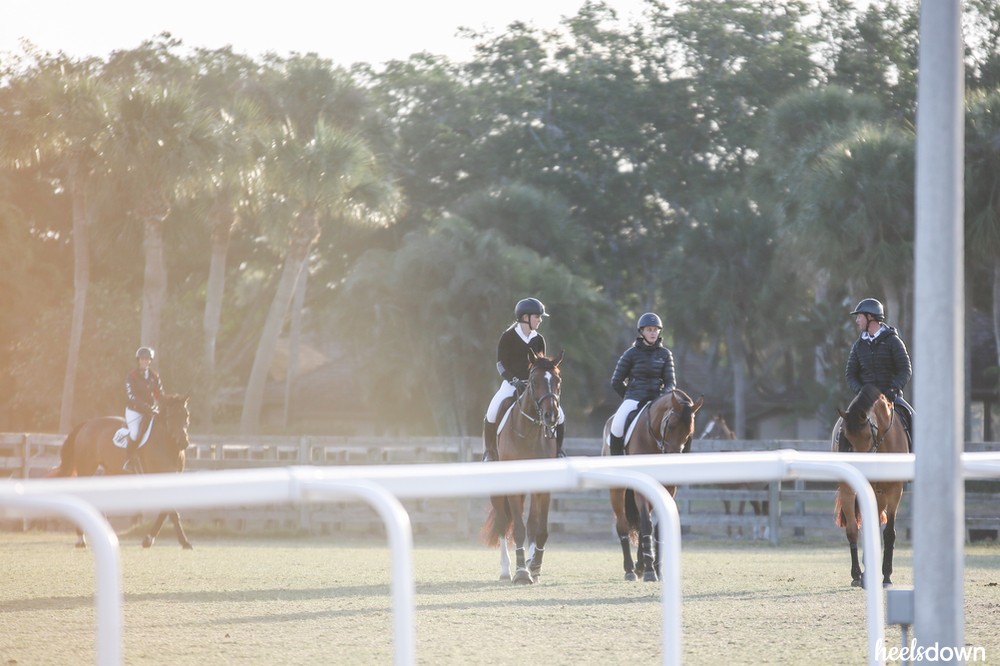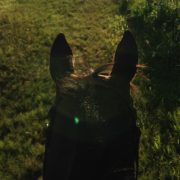I Know Why The Rail Bird Sings: Surviving The Naysayers and Drama-Makers

By Elena Perea
Dr. Perea is a psychiatrist in Asheville, N.C. She teaches and takes care of patients when she’s not riding or wrangling her sons and husband.
***
Falling off is not the only way you can be hurt in equestrian sports; words can break you just as easily as a fall from a thousand-pound animal moving at speed. For example, I was recently told that I could give a master class in ruining horses and riding upside down.
Being an adult (mostly), I immediately told myself this was “mean girl” behavior and not true — then I proceeded to text all of my trainers who confirmed it. Hey, everyone needs validation, right? Then I felt bad because I needed that reassurance at all. It went back and forth like this a bit, with me riding the emotional roller coaster of feeling awful and less-than. It was exhausting.
Then, I got a little academic about the science of put-downs. Why do people put other people down? I see it a lot being around horses. You know the scenarios: The Rail Birds standing at ringside at a show making comments about other people riding; keyboard warriors nastily commenting on somebody’s proudly posted video on Facebook. And the more passive aggressive comments that can be taken to heart: “You don’t have XYZ brand breeches? Oh…” or “um, who did your braids?” or whatever.
In short, it’s all bullying behavior.
Like This Story? Try: This Is Supposed To Be Fun, Right?
Why do people bully? I’d say it’s a defense mechanism against these perceived stresses. What, pray tell, is a defense mechanism? (You didn’t think you would escape an article written by a psychiatrist without some psychobabble, did you?) It’s an unconscious psychological mechanism that reduces anxiety arising from unacceptable or potentially harmful stimuli.
Perhaps the bully is unhappy. Maybe somebody put them down, maybe they are unhappy with their weight, unhappy in a romantic relationship, financially stressed, their horse is lame, SOMETHING.
Another idea is that they feel threatened by their victim. Maybe their victim is a better rider, more liked, encroaching on the bully’s territory. They use other people’s discomfort to (not very maturely) deal with their own—a form of projection.
Great. OK. You understand why people talk junk. How do you deal with the anxiety it causes in you? Hospitals are great about fixing broken bones, but what do we do about hurt feelings? CLEARLY YOU WILL NOT GO BULLY SOMEBODY ELSE! Understand that defenses, in the purely psychological sense are unconscious and not completely in your control. That does not mean you can’t PRACTICE more mature defenses so they will become unconscious in the future when you need to ward off anxiety and stress.
They use other people’s discomfort to (not very maturely) deal with their own.
My favorite defense mechanism is humor – the subject remains distressing, but the icky feelings are skirted around by making others laugh. For example, I did offer to put on a clinic on upside-down riding and horse-ruining at the farm (strangely, we had no takers).
Another thing I did was to identify actual facts to replace my false thought that what was written was true. As I mentioned above, I did call my trainer and make sure she didn’t think I was ruining my lovely mare. (She helpfully pointed out that were I doing so, she’d dump me every day of the week.) I used that evidence to create a more likely thought that, although I’m not perfect, I’m not actually ruining my horse.
Read This Next: Grief Is Not A Straight Line
Even if the statements or bullying behavior are false, remember that they still hurt. It is never wrong to reach out to friends, to surround yourself with strong, positive people who understand you. You are not weak for doing so — you need to process this sort of event. It helps to talk about your feelings, and if your distress is enough, even consider talking to a counselor or therapist.
Finally, I suggest making others feel good as a really good way to ease your own bruised soul. I promptly went to a clinic, watched amazing riders and horses, and told them all how great they were. I helped a friend braid for a show, and I brought beer for the barn manager.
Kindness is necessary, and wonderful. That brings me to the moral of this story: For the love of all the ponies, people: be nice to each other. We only have so much time on this earth; let’s fill that time with love for each other and our horses.


